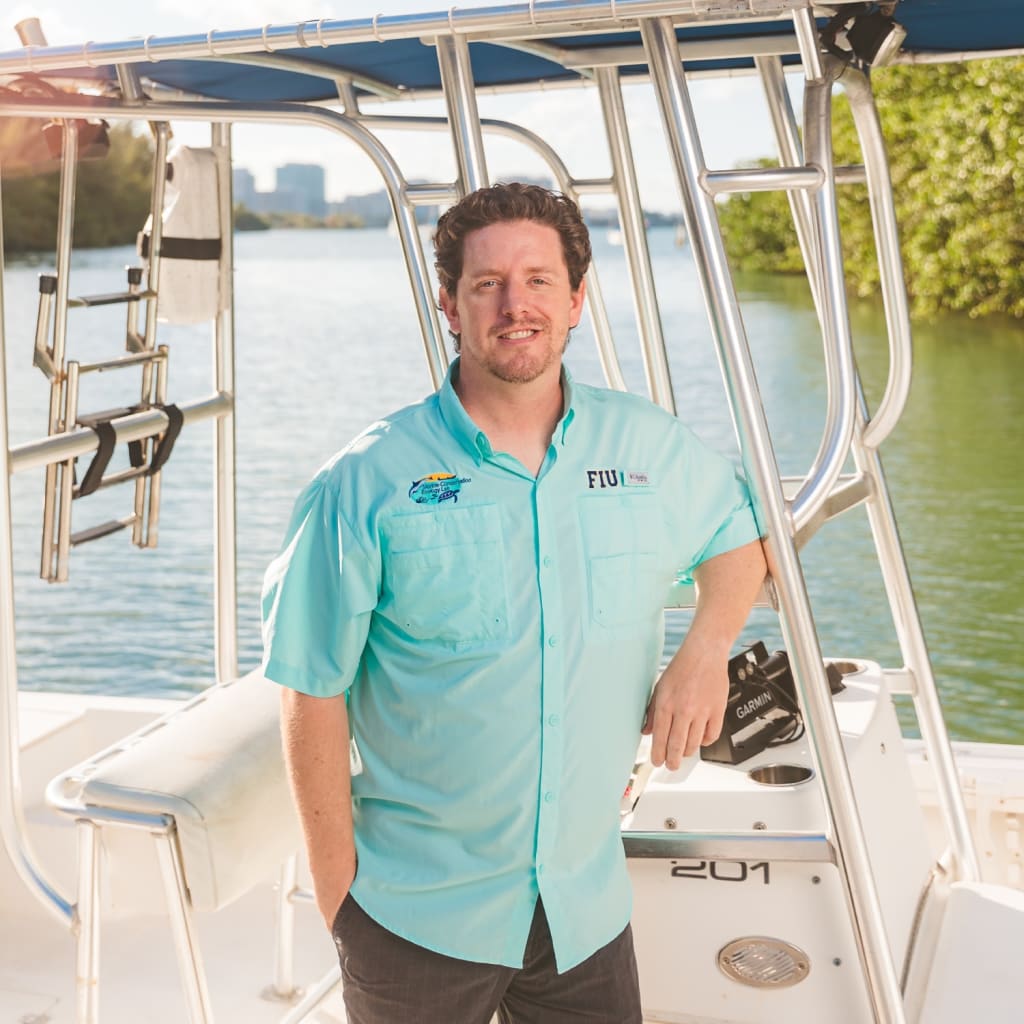By Angela Nicoletti, Florida International University

Florida manatees have faced a devastating seagrass famine. FIU marine sciences Ph.D. candidate Aarin-Conrad Allen wants to understand what this means for the health of one of Florida’s most charismatic animals.
Allen and a team of researchers found some of the first evidence that manatees in Indian River Lagoon dramatically changed their diet after an algal bloom in 2011.
They compared stomach contents from manatees living in the Indian River Lagoon during the late 1970s and throughout the 1980s to manatees living there between 2013 and 2015. With less seagrasses, manatees resorted to eating staggering amounts of algae. On average, their diet contained almost 50% algae — compared to only 28% in 1977-1989.
Allen — a Ph.D. candidate who works in marine ecologist Jeremy Kiszka’s lab — continues to study the ramifications of these changes. In addition to investigating how much seagrass remains in Indian River Lagoon, he’s measuring the nutritional value of algae to understand if it’s the equivalent of “junk food” for these large herbivores.
This piece was originally published at https://news.fiu.edu/2023/are-florida-manatees-eating-the-equivalent-of-junk-food
Sign up for The Invading Sea newsletter by visiting here.



